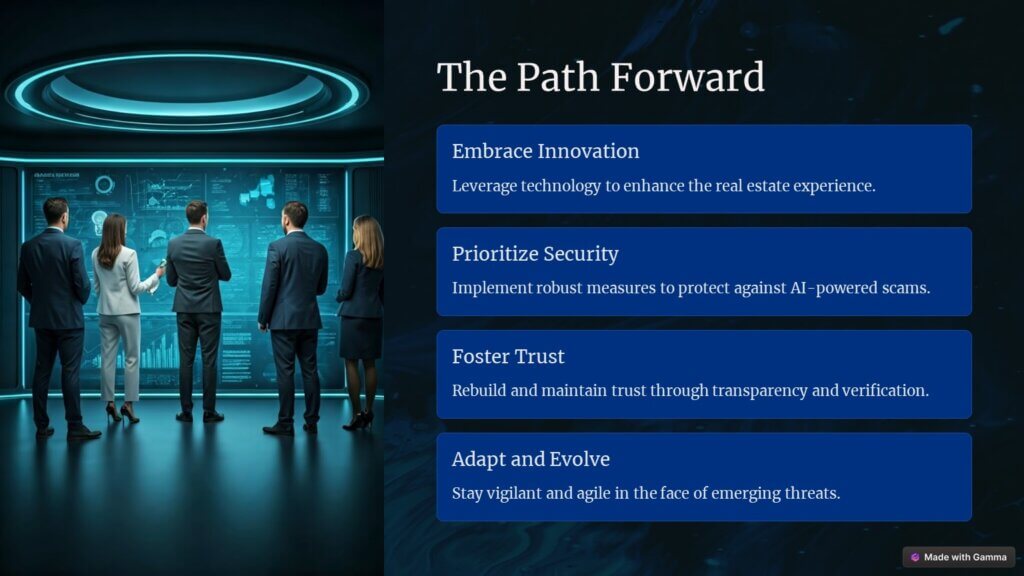Trust, Scams, and the AI Avatar - Welcome to the Future of Real Estate Fraud

Welcome to the future of real estate! It’s a world where you can close deals from the comfort of your home, meet clients over Zoom, and… oh, did I mention? Sometimes, that client isn’t even real. And no, I’m not talking about myself!

Imagine you’re about to buy a property. The seller seems trustworthy, you’ve had a few video calls, and everything looks great. But here’s the twist: the ‘person’ you’re talking to? She’s me. Well, not exactly me, but an AI-generated deepfake

This almost happened recently. In one case, an AI deepfake was created to impersonate a missing woman. The scammer used her photo to generate a video and pretended to be the property owner on a Zoom call with a title company.
Everything seemed fine at first, but red flags popped up: the taxes didn’t match, and the ‘seller’ couldn’t explain them. Fortunately, the title company got suspicious and requested proof of life.
If the buyer had gone through with the deal, they would have lost hundreds of thousands of dollars.

But it doesn’t stop there. AI is being used to send perfectly crafted emails that look just like the ones you get from your agent. Fraudsters send messages asking you to wire money to an unknown account. The emails are flawless, no typos, no suspicious links—just like something your real agent might send.
This kind of fraud is evolving, using AI to impersonate real estate agents and extract money in an instant. In a world where you can’t always tell what’s real, who can you trust?

Let’s take a look at another scenario. You’re browsing property listings, and you find your dream house. The photos are stunning, the reviews are glowing, and the price? Almost too good to be true.
But here’s the kicker—it is too good to be true. Those pictures? Generated by AI. The reviews? Fake. And the house? Doesn’t even exist.

Even more alarming are deepfake phone calls. Imagine receiving a call from someone who sounds exactly like your trusted agent or even a family member. But it’s not them—it’s an AI mimicking their voice.
In a recent case, scammers impersonated the CFO of a company, tricking an investor into wiring millions of dollars. Everything sounded legitimate, from the voice to the background noise. The only problem? It was all a deepfake.

So, how do you protect yourself? First, verify everything. If someone claims to be a seller, agent, or buyer, pick up the phone—but not the one they give you. Call the number you already have on file.
Always ask for proof of life. Video calls aren’t enough anymore—ask for in-person meetings or live verification. Fraudsters shy away from those. And remember, if a deal feels too quick or too easy, it’s probably a trap.

Agents themselves are also victims of this scam. In one example, a deepfake of an agent convinced a buyer to wire money, and neither the agent nor the buyer knew they were being tricked. Everything looked and sounded perfect, but it was all a digital mirage.

At the end of the day, trust is everything in real estate. And with the rise of AI, trust is becoming harder to find.
So, what’s real anymore? The best advice is to stay vigilant, question everything, and protect yourself at every step of the process.

Remember, the future is full of possibilities—some real, some not. Whether it’s emails, phone calls, or video meetings, always verify the source. Because while technology is getting smarter, so are the scammers.
Leave a comment
Sign in to post your comment or sign-up if you don't have any account.